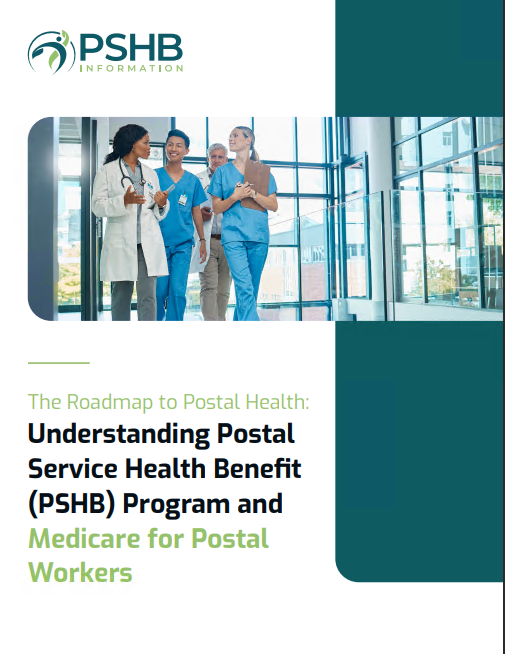Key Takeaways
- Postal Service Health Benefits (PSHB) does not typically cover long-term care, but federal employees can explore alternative insurance programs that offer this type of coverage.
- Planning ahead for long-term care is essential for postal workers as they age, helping ensure financial stability and comprehensive care in the future.
Does PSHB Cover Long-Term Care? What Postal Workers Should Consider as They Age
As postal workers approach retirement, one significant concern is how to plan for potential long-term care needs. The Postal Service Health Benefits (PSHB) program provides many benefits, but does it include coverage for long-term care? This question becomes increasingly important as individuals plan for their later years, aiming to ensure they have the necessary support as they age. Understanding what PSHB covers, and what it doesn’t, can help postal workers make informed decisions about their healthcare and financial planning.
Understanding the PSHB Program
The Postal Service Health Benefits (PSHB) program is designed specifically for postal employees and retirees, providing comprehensive health coverage similar to the Federal Employees Health Benefits (FEHB) program. However, one key distinction is that long-term care is not typically included in standard health insurance plans, including PSHB. This means that while the program offers medical, hospital, and prescription coverage, it does not cover services such as extended home care, assisted living, or nursing home care, which are essential components of long-term care.
Long-term care generally refers to services that assist individuals with daily living activities such as bathing, dressing, or eating when they are no longer able to manage these tasks independently due to age, chronic illness, or disability. Unfortunately, many assume that health insurance or government programs will cover these services, only to find out later that long-term care insurance must be purchased separately.
Why Long-Term Care Is Important for Aging Postal Workers
As postal workers grow older, the likelihood of requiring long-term care increases. Studies have shown that a large percentage of older adults will need some form of long-term care during their lifetime, whether it’s through home health services or a more formal care facility. However, the costs associated with long-term care can be substantial and are often not covered by traditional health insurance plans like PSHB.
Without adequate planning, these expenses can quickly deplete retirement savings or place a significant financial burden on family members. Therefore, it’s crucial for postal workers to consider their options for long-term care coverage early on, ensuring that they are prepared for potential healthcare needs in the future.
Alternatives to PSHB for Long-Term Care Coverage
While PSHB itself does not provide long-term care insurance, there are several alternative options available to federal employees, including postal workers, for obtaining this type of coverage.
1. Federal Long Term Care Insurance Program (FLTCIP)
One option available to postal workers is the Federal Long Term Care Insurance Program (FLTCIP). This program is specifically designed for federal employees and their families, offering coverage for a wide range of long-term care services, including home health care, assisted living, and nursing homes. FLTCIP allows federal employees, including postal workers, to purchase long-term care insurance at group rates, potentially saving them money on premiums compared to purchasing private long-term care insurance.
FLTCIP coverage can provide peace of mind, knowing that the costs of extended care are accounted for. Additionally, postal workers can choose from different plan options and benefit levels, tailoring their coverage to their specific needs and financial situation.
2. Private Long-Term Care Insurance
Another option for postal workers is purchasing private long-term care insurance. Many insurance companies offer long-term care policies that provide comprehensive coverage for extended care needs. However, private insurance policies can be more expensive than FLTCIP and may come with varying levels of benefits. It’s important to carefully evaluate these policies, considering factors like benefit triggers, waiting periods, and inflation protection, before making a decision.
While private long-term care insurance may come with a higher cost, it can also offer more flexibility and a broader range of options when it comes to choosing care providers and facilities.
Medicare and Medicaid: What You Need to Know
Many postal workers may assume that government programs like Medicare or Medicaid will cover long-term care costs. However, it’s essential to understand the limitations of these programs when it comes to long-term care services.
1. Medicare
Medicare, the federal health insurance program for individuals 65 and older, does provide some coverage for short-term care, such as rehabilitation services following surgery or hospitalization. However, Medicare does not cover the costs of long-term care, such as extended stays in nursing homes or assisted living facilities. This limitation makes it clear that relying solely on Medicare for long-term care needs may leave significant gaps in coverage.
2. Medicaid
Medicaid, a state and federal program designed to assist individuals with low income and resources, can provide coverage for long-term care services. However, Medicaid eligibility is based on financial need, and many postal workers may not qualify unless they spend down their assets. Additionally, Medicaid’s long-term care benefits are often limited to specific facilities and services, which may restrict the options available to those in need of care.
Given these limitations, postal workers should not rely on Medicare or Medicaid alone for long-term care coverage and should explore other insurance options to meet their needs.
Factors Postal Workers Should Consider as They Age
As postal workers plan for their future, several important factors should be taken into account when considering long-term care coverage.
1. Health Status and Family History
One of the most critical factors in determining long-term care needs is an individual’s health status and family medical history. Postal workers with chronic conditions or a family history of illnesses that require long-term care should be particularly mindful of securing coverage early. The cost of long-term care insurance increases with age and declining health, making it essential to consider these factors well before retirement.
2. Financial Planning and Retirement Savings
Long-term care can be expensive, with costs ranging from several thousand dollars a month for home care to even more for nursing home facilities. Postal workers should assess their retirement savings and financial plans to determine how these potential costs will impact their finances. Purchasing long-term care insurance can help mitigate these costs, protecting savings and preserving financial security in retirement.
3. Family Support and Caregiving
For many postal workers, family plays a significant role in providing care as they age. However, relying solely on family members for long-term care can place a significant emotional and financial strain on loved ones. It’s essential to have an honest conversation with family members about long-term care preferences and to explore insurance options that provide professional support when needed.
4. Timing of Long-Term Care Insurance Purchase
The timing of purchasing long-term care insurance is critical. The younger and healthier a postal worker is when they purchase a policy, the lower the premiums will be. Waiting too long to secure coverage can result in higher costs or even disqualification if health conditions worsen. Postal workers should aim to secure long-term care insurance well before they anticipate needing it, ideally in their 50s or early 60s.
Planning for the Future: Taking the Next Steps
Postal workers nearing retirement should begin planning for their long-term care needs early, evaluating both their current health status and future care preferences. While PSHB provides comprehensive health coverage, it does not include long-term care services, making it necessary to explore alternative insurance options. By considering programs like FLTCIP or private long-term care insurance, postal workers can protect their financial stability and ensure access to quality care as they age.
It’s never too early to start thinking about long-term care. With proper planning, postal workers can face the future with confidence, knowing that they are prepared for whatever health challenges may arise.
Securing Your Long-Term Care: What Postal Workers Should Keep in Mind
As postal workers navigate the complexities of health coverage, understanding the limitations of PSHB and the importance of long-term care planning is essential. By exploring options such as the Federal Long Term Care Insurance Program (FLTCIP) or private insurance, they can ensure they have the financial resources to cover extended care costs. Taking proactive steps today will allow postal workers to age with dignity and peace of mind.





